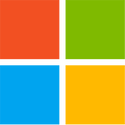Thursday, December 9th 2021

Microsoft Introduces DX12 Support for H264 and H265 Encoding via API Release
Microsoft today announced the release of H264 and H265 encoding through its DX12 API. The move brings GPU acceleration support for several video applications such as Video Decoding, Video Processing and Motion estimation. Theoretically, this should ease the burden on developers, who instead of having to implement video encoding acceleration according to the graphics vendor (be it AMD, Intel or NVIDIA), can now work through the DX12 API to achieve the same effect throughout all providers, simplifying programming and efficiency efforts - though Microsoft was coy about potential advantages and disadvantages of the new feature.
While the implementation will eventually reach all platforms, the DX12 API encoding integration is currently only available for both Intel and NVIDIA. Work still has to be done on AMD's implementation, which generally uses fixed-hardware function blocks to allow for higher performance whilst encoding and transcoding - at the loss of some flexibility. There are graphics cards driver requirements that have to be fulfilled to enable the full encoding capabilities (and these can also be only partially supported, though performance will undoubtedly suffer).Intel drivers support the new DX12 API feature from v30.0.100.9955 for the Tiger Lake, Ice Lake and Alder Lake (starting in 2022) architectures. NVIDIA driver support is available from release v471.41, and the encoding feature is supported by GTX 1000, 2000, 3000 and Quadro series cards through. Support for AMD graphics accelerators starting from the RX 5000 series and the IGP in Ryzen 2000 APUs is expected towards Q2 2022.
Source:
Microsoft
While the implementation will eventually reach all platforms, the DX12 API encoding integration is currently only available for both Intel and NVIDIA. Work still has to be done on AMD's implementation, which generally uses fixed-hardware function blocks to allow for higher performance whilst encoding and transcoding - at the loss of some flexibility. There are graphics cards driver requirements that have to be fulfilled to enable the full encoding capabilities (and these can also be only partially supported, though performance will undoubtedly suffer).Intel drivers support the new DX12 API feature from v30.0.100.9955 for the Tiger Lake, Ice Lake and Alder Lake (starting in 2022) architectures. NVIDIA driver support is available from release v471.41, and the encoding feature is supported by GTX 1000, 2000, 3000 and Quadro series cards through. Support for AMD graphics accelerators starting from the RX 5000 series and the IGP in Ryzen 2000 APUs is expected towards Q2 2022.

9 Comments on Microsoft Introduces DX12 Support for H264 and H265 Encoding via API Release
This would probably allow a rather easy (as easy as D3D COM programming is...) implementation of a tool to compare the quality of hardware encoders between vendors.
The woke will have to wait.
It has my interest, as NVENC creates massive files. Whilst x264 encoding is much smaller files for same quality.
Handbrake talked a great deal about using OpenCL and the specific nVidia/AMD encoders to do all the work in hardware instead of software but they never quite got around to getting it to work so basically if had nVidia or intel you got hardware accelerated encoding but if you had AMD well you were stuck with old school software encoding using your CPU instead just like the nVidia/physX debacle